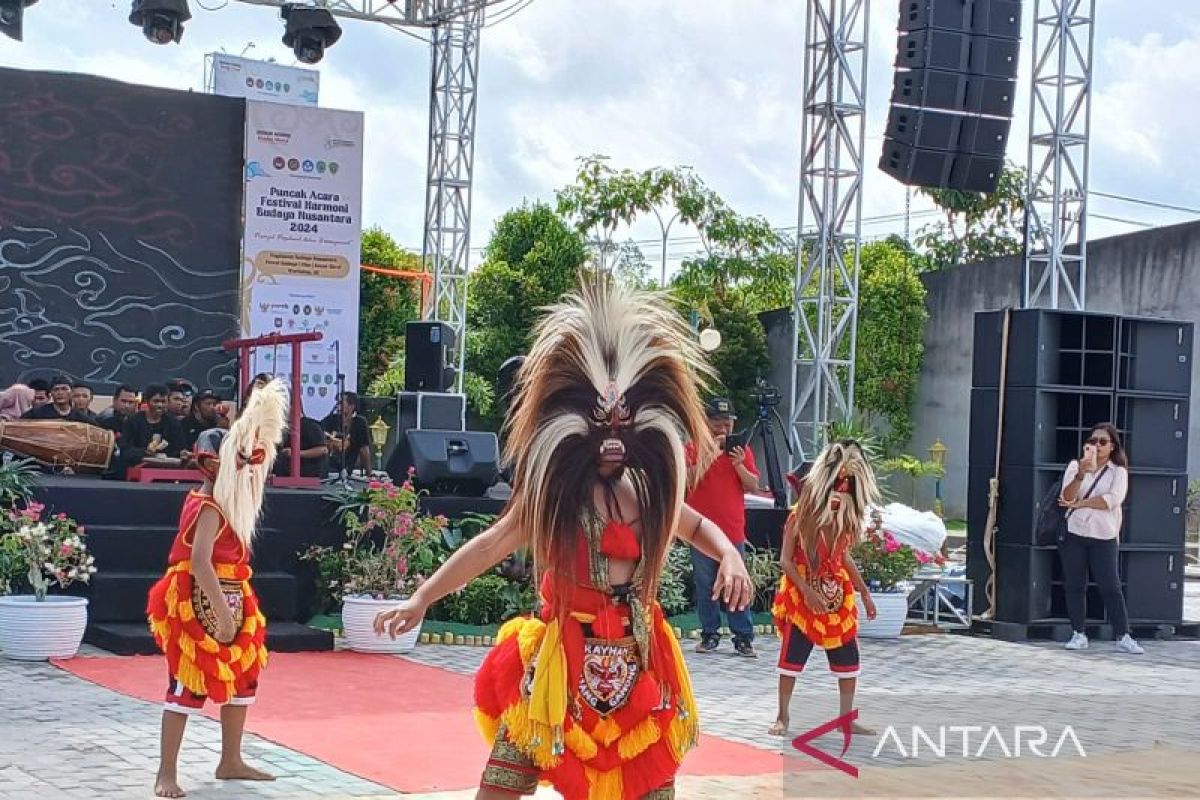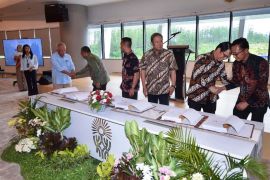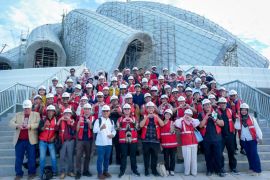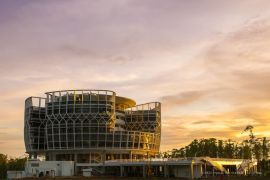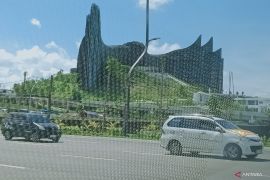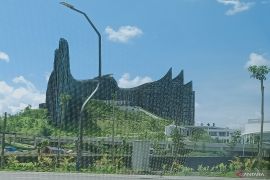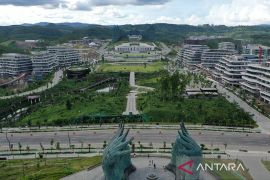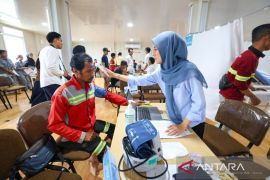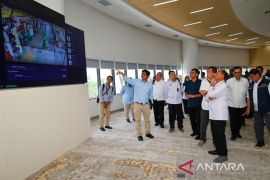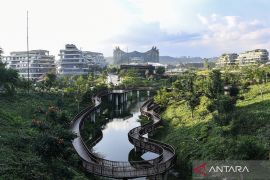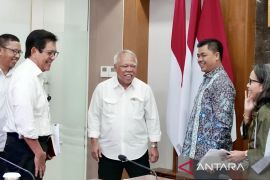At first glance, this festival looks similar to other cultural festivals in general, but there is something unique.
The first distinctive aspect is that the implementation of FHBN is based on the results of a strategic socio-cultural study of local communities conducted by the Coordinating Ministry for Human Development and Cultural Affairs in 2022.
This study aims to assess the local communities' perception of the Nusantara Capital City (IKN) in the buffer areas, namely Penajam Paser Utara and Kutai Kertanegara Regency.
This is necessary so that a good cultural acculturation process occurs while moving state civil servants (ASN) to the IKN. The study considers the welfare conditions of local communities in the buffer areas of IKN that still lag behind neighboring areas such as Balikpapan and Samarinda.
The study's results indicate the need for a socio-cultural approach towards local communities in the IKN buffer zone as a continuous affirmative step. This also includes increasing the capacity and capability of human resources in the buffer zone.
A cultural approach should be adopted, considering the differences in social, economic, and cultural characteristics between local communities and immigrants ranging from construction workers to ASN.
This approach is deemed necessary to mitigate social conflict due to overlapping land ownership, loss of ecosystems and people's identities, loss of decent work opportunities, social jealousy, and environmental damage.
The case of the land conflict of the Pamaluan people, North Penajam Paser, some time ago, whose existence was considered to not be in accordance with the IKN spatial plan is one example of the potential for social conflict that must be watched out for.
One of the recommendations from the study's results is to hold a cultural festival in the IKN area and its buffer areas.
Cultural festivals should be held to increase understanding of cultural diversity, build a cultural ecosystem to welcome the development of IKN, and strengthen the synergy between local wisdom and innovation that unites the community.
The festival is expected to offer a space for cultural expression and also serve as a safety valve for social conflict in the IKN.
Several studies have shown the role of festivals as spaces for cultural expression. Wei Gu et al (2020) study showed that the Dragon Boat Festival in Qianxinan, Southwest Guizhou, China, not only functions as a cultural performance but also as an economic driver and for the preservation of traditional medicine and medical knowledge involving all stakeholders.
Similarly, Csurgo and Smith (2021) study showed the role of cultural festivals in encouraging cultural expression and traditional knowledge of rural communities in Hungary such as through folk dances, embroidery, and murals.
Related news: IKN Authority plans MSME and Cultural Arts Center in Nusantara
FHBN started rolling in 2023 in the form of a series of cultural festivals in all regencies and cities in East Kalimantan, with its peak on November 3, 2023, at the Bukit Raya Village square, Sepaku District, North Penajam Paser, which was attended by the president of the Republic of Indonesia.
FHBN 2023 resulted in two agreements: the Charter of Support from the sultans, local communities, and traditional figures for the sustainability of the development of the IKN and the Minutes of Support for the Sustainability of the Implementation of FHBN from all Regional Heads (Governor/Regent/Mayor) in East Kalimantan.
The Indonesian president lauded the FHBN 2023 as the first cultural festival in IKN and said that a socio-cultural approach must be prioritized in the development of IKN.
The second unique aspect is that the FHBN 2024 was held with a limited budget but succeeded in building mutual cooperation across ministries and institutions, State-Owned Enterprises and Regional Governments, both the Penajam Paser Utara Regency Government as the host, the Provincial/Regency/City Governments in East Kalimantan to other Provincial Governments such as Central Kalimantan, Riau Islands, Lampung, and West Nusa Tenggara.
The third inimitable aspect is the participation of all stakeholders, including local communities, in this festival.
Stakeholders' participation is deemed crucial, as it can build a sense of ownership of FHBN as a space for cultural expression. Some interesting examples of FHBN 2024, which is an affirmation program for local communities, include training and short film competitions involving young people and a music corner program for traditional musicians of East Kalimantan.
The public's enthusiasm for FHBN 2024 was extraordinary from the start to the end of the event.
The people were highly enthusiastic and actively involved since the opening that kicked off with a cultural parade in which participants wore traditional attire from their respective regions of origin, thereby reflecting respect for diversity and was in line with the FHBN 2024 theme of "Building Unity in Diversity."
The participation of artists from East Kalimantan and various regions such as the Riau Islands (pantun art), Central Kalimantan (dance art), Lampung (gambus music), West Nusa Tenggara (oral art), and the Reog Ponorogo performance presented by Sanggar Singi Koyo Nusontoro, a transmigrant community in North Penajam Paser, is a real manifestation of respect for the harmony of cultural expression.
On the sidelines of the FHBN event, the inauguration of the Pancasila Laboratory School was also carried out, an elementary school in Penajam Paser Utara that encourages the imbibing of Pancasila values through various improvements in creativity such as art creations, sports, and waste bank management.
Meanwhile, in the 2024 FHBN, a traditional game competition was also held which was not only to reintroduce spinning tops, gobak sodor, sumpit, and others to the younger generation but also to strengthen positive values such as sportsmanship, self-confidence, and a strong personality.
National development, including the IKN, must go hand in hand with respect for the diversity of expressions and values starting from the local level.
This is in line with the implementation of Law Number 5 of 2017 concerning the Advancement of Culture and the commitment of the UNESCO Convention for the Protection and Advancement of the Diversity of Cultural Expressions in 2005.
The most important aspect is to maintain the sustainability of the implementation of FHBN in the future as a space for affirmation and expression of local culture. (INE)
*Andre Notohamijoyo is the Assistant Deputy for Cultural Advancement and Preservation of the Coordinating Ministry for Human Development and Culture, a cultural observer, and a member of Indonesia Environmental Scientists Association (IESA).
The views and opinions expressed on this page are those of the author and do not necessarily reflect the official policy or position of ANTARA News Agency.
Related news: Involving indigenous communities in IKN cultural preservation
Copyright © ANTARA 2024
